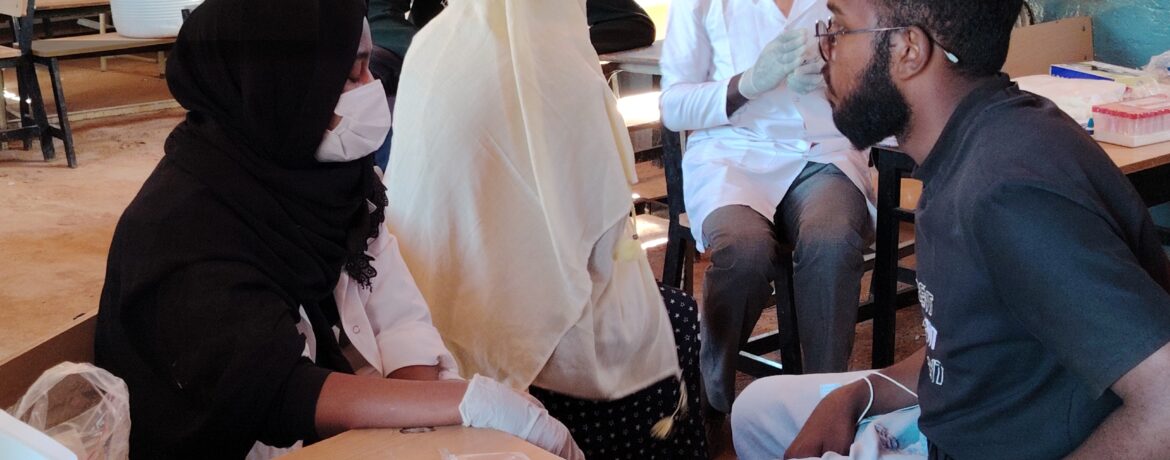
Organization: Swaidna for Sustainable Development (SSDO)
Location: Khartoum, Kararri
Project Name: Partial Health Support
Project Code : C0100
Project Type : NFI project
Activities: Health Camp
Beneficiaries: Citizens and displaced persons from various locations
Implementation Period: October 2024
Executive Summary of Implemented Activities:
In response to the humanitarian crisis, our organization has launched mobile health clinics to provide essential medical services to internally displaced persons and vulnerable communities, ensuring that healthcare is accessible and affordable for all , Swaidna conducted various medical support activities over two days in two different areas of Kariri locality:
– East Al-Fatah
– Al-Iskan.
These areas are classified as highly vulnerable with a significant concentration of both residents and displaced persons.(Those areas have been placed under RED Flag).
Activities Undertaken:
The following services were provided at the health camps:
Medical Examinations: Comprehensive examinations were conducted, including chronic disease screenings, pediatric assessments, and general check-ups.
Medical Consultations: Specialized doctors provided consultations across various medical specialties.
Medication Distribution: Essential medications, chronic disease medications, pediatric medications, and nutritional supplements were distributed to beneficiaries.
Health Education: Workshops were organized to raise awareness about public health, disease prevention, the preparation of rehydration solutions, and the importance of handwashing with soap and water.
Quantitative Data:-
Number of beneficiaries: 1,284
Number of people with disabilities : 50
Number of Total Children :350
Number of girls are greater than 18 :200
Number of girls are less than 18 : 150
Numbers of displaced Women : 600 Women
Numbers of displaced Men : 284
Types of examinations:
8 types, including chronic disease, dermatological, pregnancy, and pediatric screenings.
Number of medications distributed: 2,300
recommendations:
Based on the results achieved during the health camp, we recommend the following:
Repeat Health Camps: Given the high demand for services, it is recommended to organize health camps regularly to meet the community’s needs.
Expand Services: The scope of services provided at the camps can be expanded to include other medical specialties such as obstetrics and gynecology, and mental health.
Partner with Health Institutions: Strengthen partnerships with government and private health institutions to provide better services to the community.
Develop Health Education Programs: Focus on developing ongoing health education programs to raise awareness among community members.
Impact Assessment: Conduct a comprehensive assessment of the health camp’s impact on the community to measure the effectiveness of the implemented activities and suggest necessary adjustments.
Testimonials and Quantitative Data:
Beneficiaries expressed their deep gratitude for all the services provided, especially after receiving chronic disease medications. They actively engaged with the trainers who conducted the awareness workshops. The joy on the faces of children, the elderly, and women was evident.
Challenges:
High cost of medications
Artillery shelling
Large number of beneficiaries
Long distances
Need for regular follow-up for patients
Cases requiring urgent medical intervention
